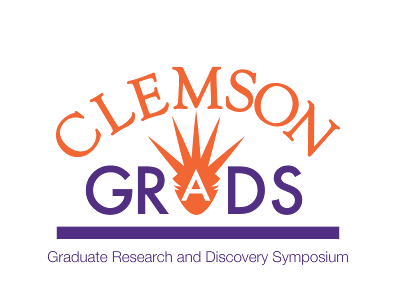Graduate Research and Discovery Symposium (GRADS)
Document Type
Poster
Publication Date
4-1-2019
Abstract
The purpose of this study was to contrast the use of two types of progress monitoring measures in a university introductory course about special education taught face to face across 15 weeks. Researchers used curriculum-based measurement (CBM; Deno, 1985) methodology to develop vocabulary-matching (see Espin, Busch, Lembke, Hampton, Seo, & Zukowski, 2013) and vocabulary-selection probes. Each alternate form sampled words from the larger pool of 150 special education-related terms from the textbook glossary (Hallahan, Kauffman, & Pullen, 2015). Research questions focused on the examination of participant feedback about the two probe types used during vocabulary assessment activities in the course and participant growth in vocabulary knowledge as well as their knowledge of progress monitoring practices. Survey results indicated that participants preferred (75%) the matching probes to the selection probes (25%) and specified that the matching probes (93%) were good indicators of their knowledge in the course compared to the selection probes (54%). Participants reported that participating in the vocabulary assessment activities helped them understand how progress monitoring tools can be used to assess content area knowledge and thought it would be feasible and beneficial for them to use with their future students. Although more than three-quarters of participants felt the graphs for both types of measures were useful for seeing their progress in course vocabulary knowledge, interestingly, less than a quarter of participants reported that taking the probes and seeing their progress caused them to alter their study habits for the course. General and special education preservice teachers (n = 29) demonstrated improvement in vocabulary-matching and vocabulary-selection measures from beginning probes to last probes. Significant growth was detected on the vocabulary pre-/posttest measure and the CBM knowledge pre-/posttest measure, indicating that students grew in their course-related vocabulary knowledge and their knowledge of CBM across the semester. Additionally, in an extension of this study, a subset of vocabulary matching and vocabulary selection probes were administered to preservice educators during a subsequent section of the same course offered online during a shortened summer term. Participants (n = 11) took vocabulary pre/posttests online as well as four alternate forms of each probe type across the 5-week course. Then, they rated their preferences regarding the probe types. Interestingly, this group preferred the selection probes (100%) to the matching probes, primarily due to its ease in completing the measure online. They also indicated that the selection probes were good indicators of their knowledge in the course compared to the matching probes. Implications for using CBM vocabulary measures in face-to-face and online university coursework are addressed.
Recommended Citation
Johnson, Friggita; Popham, Michelle; Adams, Simone; and Stecker, Pamela M., "Preservice Educators' Perceptions About Two Types of Vocabulary Progress Monitoring Measures" (2019). Graduate Research and Discovery Symposium (GRADS). 256.
https://tigerprints.clemson.edu/grads_symposium/256


